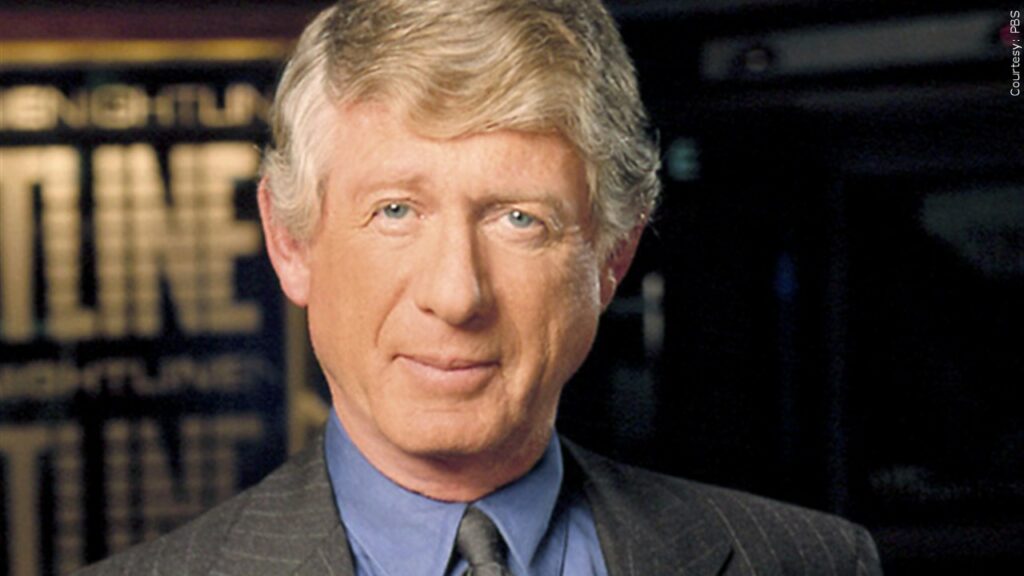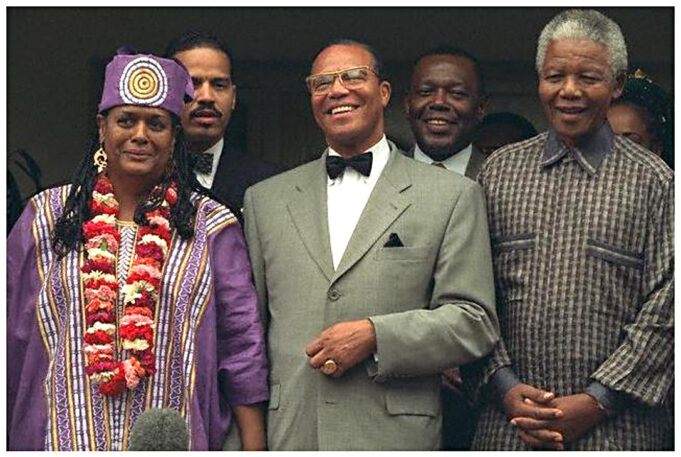The similarities between the interactions with Jewish leaders and organizations of influence—whether in person or upon reflection, by the Honorable Minister Louis Farrakhan and Nelson Mandela—are worth looking back on. Mandela was sentenced in 1964 by prosecutor Percy Yutar, who used his increased fame in the Apartheid State of South Africa to become attorney general and later the president of the country’s largest Jewish Synagogue. Mandela was released in 1990 after serving 27 years with most of his sentence being in Robben Island Prison.

A synopsis of Mandela’s interaction with “prominent” Jewish leaders can be discovered during a 1990 town hall meeting at New York’s City College, hosted by ABC’s Ted Koppel. During Koppel’s media years, which included being host of Nightline, he was one of the most prominent Jewish television news hosts anywhere to be found.
During an exchange with prominent members of the Jewish community, Mandela wondered out loud to Koppel, why he was rehashing discussions with Jewish leaders he already had. Questioned about this apparent duplicity, Koppel became speechless, resulting in a long pause, caused Mandela to respond, “I don’t know if I paralyzed you?”
According to Mandela, either Koppel “hasn’t listened to my argument” or “you have not been serious in examining it.”
It appeared Mandela’s angst came from the Jewish leaders who were chosen to ask questions he had answered during previous meetings. At the time Mandela was head of the African National Congress (ANC). Henry Siegman, executive director of the American Jewish Congress, was asked by Koppel, “Stand for a moment and pose whatever question he would like directly to you.”

Siegman said, Mandela’s response displayed “a certain degree of amorality by ignoring human-rights violations in other nations.” But Mandela did not back down.
He responded, “Firstly, we are a liberation movement, which is fully involved in a struggle to emancipate our people from one of the worst racial tyrannies the world has seen,” he said. “We have no time to be looking into the internal affairs of other countries,” Mandela added.
Another question was asked by a member of the Jewish community, Ken Adelman of the Institute of Contemporary Studies. “Those of us that share your struggle for human rights and against apartheid have been somewhat disappointed by the models of human rights that you have held up since being released from jail. You’ve met over the last six months three times (with Yasser Arafat). Are these your models of human rights and would you want a Arafat or a (Muammar) Gadhafi or a (Fidel) Castro (to be affiliated) with the future president of South Africa?” he asked Mandela.
Mandela responded, “One of the mistakes which some political analysts make is to think that their enemies should be our enemies. (Thunderous applause) Our attitudes towards any country is determined by the attitude of that country to our struggle. Yasser Arafat, Colonel Gadhafi, Fidel Castro support our struggle to the hilt. They do not support in rhetoric. They are placing resources at our disposal for us to wage the struggle. That is the (ANC) position.”
Min. Farrakhan, while Mandela traveled in the U.S., donated to the work of the ANC. During his 1996 World Friendship Tour, Min. Farrakhan traveled to South Africa and met with President Mandela.
As part of his recent February 26 Saviours’ Day address, the almost 90-year-old Muslim leader explained in front of thousands at the Wintrust Arena in Chicago that Jewish inordinate influence must be broken.
Mandela made mention of Jewish inordinate influence during the town hall with Koppel, saying after he was released from prison, he went out of his way to meet with Jewish leaders in South Africa and in America. Mandela, similar to Farrakhan, said, “I am still prepared to do that even in this talk. If a Jewish leader has any doubts about our stand, I am willing to address them.”
Follow @JehronMuhammad on Twitter













